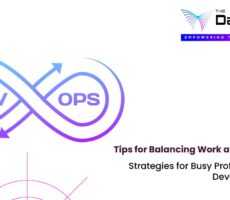Introduction
In the realm of DevOps courses, theoretical knowledge alone often falls short in preparing individuals for real-world scenarios. Hands-on labs and projects serve as invaluable tools to bridge this gap, equipping learners with practical skills essential for success in the field. Let’s delve into why these hands-on experiences are crucial for mastering DevOps concepts.
Understanding the Theory vs. Application Dilemma
Many DevOps courses primarily focus on imparting theoretical knowledge. While this lays a foundation, it often leaves learners grappling with how to translate this knowledge into practical solutions. Hands-on labs and projects address this dilemma by providing a platform for application-based learning.
Bridging the Gap between Classroom and Industry
The transition from classroom learning to professional environments can be daunting. Hands-on labs and projects serve as a bridge, offering learners the opportunity to apply theoretical concepts in simulated real-world scenarios. This practical exposure prepares them for the challenges awaiting them in the industry.
Enhancing Retention through Experiential Learning
Studies have shown that hands-on learning significantly improves knowledge retention compared to passive learning methods. By actively engaging with DevOps tools and methodologies in labs and projects, learners reinforce their understanding and retain information more effectively.
Benefits of Hands-On Labs
Hands-on labs play a pivotal role in the DevOps learning journey, offering a multitude of benefits that traditional lectures often cannot match.
Immersive Learning Experience
Hands-on labs provide an immersive learning environment where learners can interact directly with DevOps tools and technologies. This experiential approach fosters a deeper understanding of concepts as learners actively explore and experiment with various scenarios.
Real-Time Feedback and Troubleshooting
One of the key advantages of hands-on labs is the immediate feedback they offer. Learners can see the outcomes of their actions in real-time, allowing them to identify and rectify errors on the spot. This iterative process of trial and error instills a problem-solving mindset crucial for DevOps professionals.
Collaboration and Peer Learning
Hands-on labs often encourage collaboration among learners, simulating the teamwork prevalent in real-world DevOps projects. By working together to overcome challenges and share insights, participants not only reinforce their own learning but also benefit from the diverse perspectives of their peers.
Importance of Projects in DevOps Courses
While hands-on labs provide valuable experiential learning opportunities, projects take this a step further by immersing learners in comprehensive, real-world scenarios.
Application of Comprehensive Skills
DevOps projects require the integration of various skills, from coding and scripting to deployment and monitoring. By working on projects, learners apply their knowledge across the entire DevOps lifecycle, gaining a holistic understanding of how different components interact.
Portfolio Building for Career Advancement
Completing meaningful DevOps projects allows learners to build a portfolio showcasing their practical skills and accomplishments. This portfolio becomes invaluable when seeking employment or advancing within the field, as it demonstrates hands-on experience and problem-solving abilities to potential employers.
Preparation for Industry Challenges
DevOps projects often mirror the challenges encountered in real-world environments, preparing learners to tackle similar scenarios in their professional careers. By navigating complexities such as continuous integration, deployment pipelines, and infrastructure automation, participants develop the resilience and adaptability necessary for success in the industry.
Conclusion
In conclusion, hands-on labs and projects are indispensable components of DevOps courses, offering learners the opportunity to translate theoretical knowledge into practical skills. By providing immersive learning experiences, real-time feedback, and exposure to industry-relevant scenarios, these hands-on activities empower individuals to excel in the dynamic field of DevOps. Embracing a combination of theoretical learning and practical application through hands-on labs and projects is key to building a strong foundation and thriving in the ever-evolving DevOps landscape.





